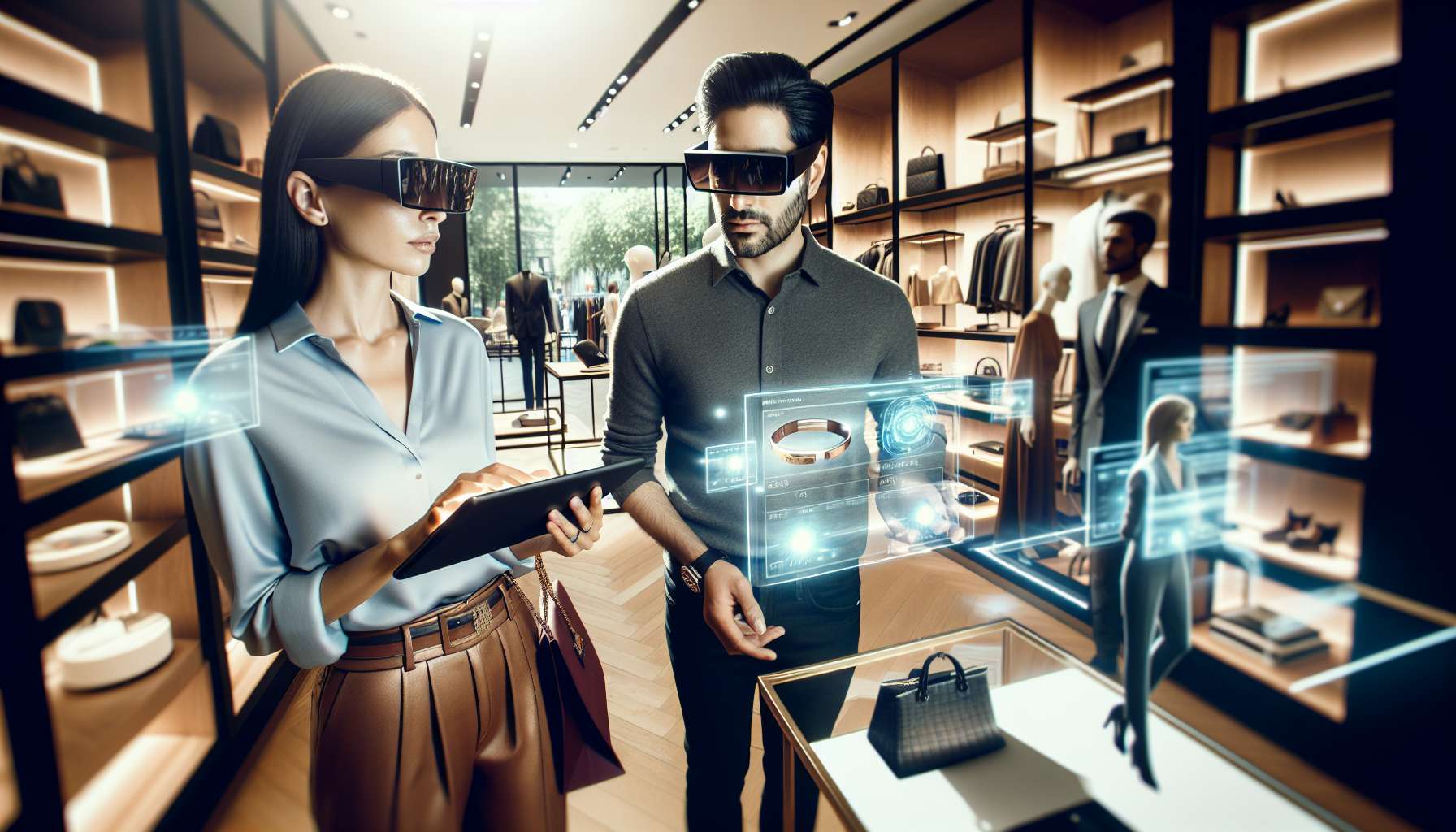The Power of Augmented Reality in Luxury Retail
Augmented Reality (AR) has revolutionized the way we shop, particularly in the realm of luxury retail. By seamlessly blending the physical and digital worlds, AR has the potential to create immersive and personalized shopping experiences that cater to the unique needs and desires of high-end consumers. But what is the psychology behind these AR shopping experiences, and why are they so effective? Let’s delve into the fascinating world of AR and explore its impact on luxury retail.
1. Enhanced Engagement and Emotional Connection
AR shopping experiences have the remarkable ability to captivate and engage customers on a deeper level. By overlaying digital elements onto the real world, AR creates a sense of wonder and excitement, making the shopping process more enjoyable and memorable. Luxury retail brands can leverage this technology to evoke emotions and forge a stronger connection with their customers.
For example, imagine trying on a virtual pair of designer sunglasses in a high-end boutique. As you see your reflection in the mirror, the AR technology superimposes the sunglasses onto your face, allowing you to visualize how they would look on you. This interactive experience not only enhances engagement but also triggers positive emotions, making you more likely to form a connection with the brand and ultimately make a purchase.
2. Personalization and Customization
One of the key drivers behind the success of luxury retail is the ability to provide personalized and customized experiences. AR technology enables brands to take personalization to a whole new level. By analyzing customer data and preferences, AR can recommend products that align with individual tastes and styles.
For instance, a luxury fashion retailer could use AR to create virtual fitting rooms where customers can try on different outfits without physically changing clothes. By scanning the customer’s body measurements and style preferences, the AR system can suggest clothing options that are tailored to their unique physique and fashion sense. This level of personalization not only enhances the shopping experience but also increases the likelihood of a purchase.
3. Overcoming Barriers and Building Confidence
AR shopping experiences can help overcome common barriers that customers face when shopping for luxury products. One such barrier is the fear of making the wrong purchase decision. With AR, customers can virtually try on expensive jewelry, test out furniture in their homes, or even visualize how a luxury car would look in their driveway. This technology empowers customers to make more informed decisions, boosting their confidence and reducing the risk of buyer’s remorse.
Moreover, AR can bridge the gap between online and offline shopping experiences. Customers can use their smartphones or AR-enabled devices to virtually explore a luxury store, browse products, and even receive personalized recommendations. This seamless integration of digital and physical channels creates a cohesive and convenient shopping journey, eliminating the need for customers to visit multiple stores or websites.
4. The Future of Luxury Retail
The potential of AR in luxury retail is vast and ever-evolving. As technology continues to advance, we can expect even more immersive and sophisticated AR shopping experiences. From virtual fashion shows to interactive product demonstrations, luxury brands will continue to push the boundaries of what is possible.
Furthermore, AR has the potential to extend beyond the shopping experience itself. Brands can leverage AR to provide post-purchase support, such as virtual tutorials on how to care for luxury items or personalized styling advice. This ongoing engagement not only enhances customer satisfaction but also fosters brand loyalty.
In Conclusion
The psychology behind AR shopping experiences in luxury retail is rooted in enhanced engagement, personalization, confidence-building, and the seamless integration of digital and physical channels. By understanding and harnessing the power of AR, luxury brands can create unforgettable shopping experiences that resonate with their high-end clientele. As technology continues to evolve, the future of luxury retail looks increasingly exciting and promising.





